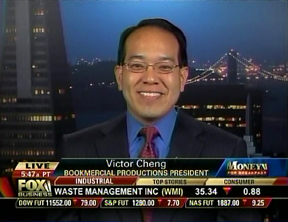 I’ve put in my 10,000 hours at being a neurotic writer.
I’ve put in my 10,000 hours at being a neurotic writer.
Now I’m sharing what I’ve learned with you!
I’ve created a course called “How to Live The Writer’s Life”
This isn’t focused on *selling* your writing (I may teach a course on that later.)
This is focused on *actually* writing.
Like, how to get yourself to do it regularly. (Which is, by the way, most of the “trick” to being a writer.)
–> How to do that most elusive thing writers are supposed to do, “Find your voice.”
–> Vulnerability vs. transparency. How to be “vulnerable” (that 2010’s must-have for writers) without being transparent about that… uh… that… that *thing* you’d rather people not know about…
–> Dealing with rejection from family, friends, and publishers (A writer who can’t deal with rejection is like a surfboard who can’t deal with water.)
–> Owning your identity as a writer fully, and dealing with people’s judgments of that identity. (“Oh, a *writer*. I see. What have you published?”)
–> How to write things people will actually read.
–> How to find the best material to write about.
–> Paying your dues as a writer adequately, but not *overpaying*!
–> How to get the feedback you need, while avoiding the feedback you don’t need. Knowing whose advice/feedback about your writing take seriously, painful as it is, and whose advice/feedback to say “Fuck off!” to.
–> How to become a better writer.
–> How to find writing mentors.
–> How to deal with the fact that most other people who are as smart as you, and who are not writers, are probably making more money than you.
–> Dealing with the greatest writing-killer the world has ever known: perfectionism
–> Gaining the courage to share your writing with an audience, before you know it’s perfect. (If you waited until you *know* it’s perfect, you might start sharing some of your writing in the old age home. And then, only because you’ve given up on waiting for things to be perfect!)
–> Career guidance for writers. If you’re going to spend all this time developing the skill of stringing words together, you might as well figure out how to make some dough from it. (No, not how to sell your writing. That’s the *worst* way to try to get paid for your writing skill.)
–> Mental Health and Sanity 101 for writers (You’re going to need it!)
Note: my own focus, for 20 years, has been non-fiction, so that’s where my perspective comes from. I have *zero* credibility on how to write fiction (create characters, plot, etc), poetry, etc., so I won’t be talking about fiction specifically. But I do think a lot of the stuff I mention above applies to fiction and poetry writers as well.
So, here is:
How to Live the Writer’s Life
A Course on All the Topics Above
by Michael Ellsberg
–> Four recorded class modules, 2 hours each
–> $150 for the series.
–> One of the greatest components of the class, is the private Facebook group and community for the class, where you’ll meet all kinds of fellow travelers on the writing path, many of whom may become your writing buddies for life. *Here* you can share your writing, ask for feedback, ask questions and get advice from your fellow writers. Honestly, just meeting one good writing friend is worth the entire price of this course. This private group is currently alive and hopping with activity, with over 100 students participating.
I’ve also asked some of my friends who I consider to be *real writers* to join us for interviews. These are not just people who happen to have written (or had a ghostwriter write) a book as a business card for their business. These are not just people who happen to have a blog because, well, having a blog is the thing to do.
These are people who have *paid their dues* as real writers, over many years or decades, who identify as writers as a core part of their identities, who have achieved success as writers, and who are very well qualified to provide us guidance and wisdom on Living The Writer’s Life. You’ll have access to these bonus recordings as well.
This class is for you if:
- You’ve been “wanting to write” for a long time but can’t seem to get yourself to do it. Other things always seem to take priority over your writing.
- You “know you’ve got a book in you”- but that’s where it seems to stay- inside of you! And you want to get it OUT, into the world!
- You feel isolated as a writer, and you long for community (a tribe) of writers on the same writing path as you
- You feel a bit “weird” for being so obsessed with writing, almost as if it’s a guilty pleasure, and you don’t quite know how to fit this obsession in with the rest of your life, or with your family and friends
- You’re finally ready to take your writing seriously, or take it to the next level
If any of these describe you, you’ll definitely want to be a part of this. I won’t teach this course again, so now’s your chance.
Ready to join us? Register here and you’ll get instant access to all the recordings, and the Facebook group, which is going strong.
(Be sure to click through the “Back to Michael Ellsberg” link on PayPal’s confirmation page, to get access to the Welcome materials for the course.)
Can’t wait to *see* you in the course!
To the writing life,
–Michael





